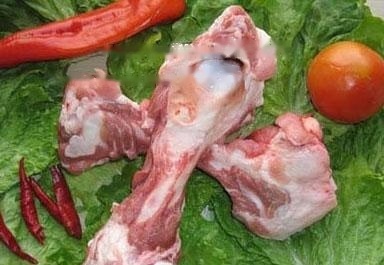
Can dogs eat bones? bone) do not give it to dogs. Let's first understand the advantages and disadvantages of eating bones for dogs:
1. The benefits of eating bones for dogs
1. Calcium supplement: this It is a common saying that although dogs really supplement themselves with very little calcium by chewing on their bones, there is a certain amount of calcium supplementation. In fact, the calcium in the bones is difficult to be absorbed by the dog's stomach after digestion, and most of it is excreted with the feces.
2. Teeth cleaning: This benefit is certain. Because when the dog is chewing on the bone, it rubs the surface of the teeth, which has a good cleaning effect on its teeth. Dogs in rural areas generally have bright and white teeth, because they often have the opportunity to chew large bones and eat hard food. This is good for dental health.
2. Disadvantages of dogs eating bones
To be precise, the disadvantages of improperly feeding bones, there are many, such as: bone stab wounds Mouth, digestive tract, esophageal infarction caused by large bones, gastritis, gastroenteritis caused by eating too many bones, gastric perforation caused by sharp bone fragments, etc.
3. Dogs can't eat those bones?
Don't feed the small joint bones of poultry: including the neck bones of chickens, ducks, pigeons, head bones. These kinds of bones are relatively small, and they are prone to form broken bones after being crushed, which can scratch the dog's throat and stomach, causing heavy bleeding. In addition, for a dog with a relatively large body, it is easy to swallow small bones such as chicken necks if it is not chewed well. If it is really infarcted in the esophagus, it will be troublesome. If you have to go to the hospital, it is better to be careful.
4. Bones that can be fed to dogs
Cooked or raw big stick bones of pigs, cattle and sheep, this kind of bone It is thicker and safer for dogs to bite. At the same time, it is also better for dogs' digestion and teeth maintenance.
![[Dog Training 5] The training method of pet dog dining etiquette](/static/img/12192/12192_1.jpg)




